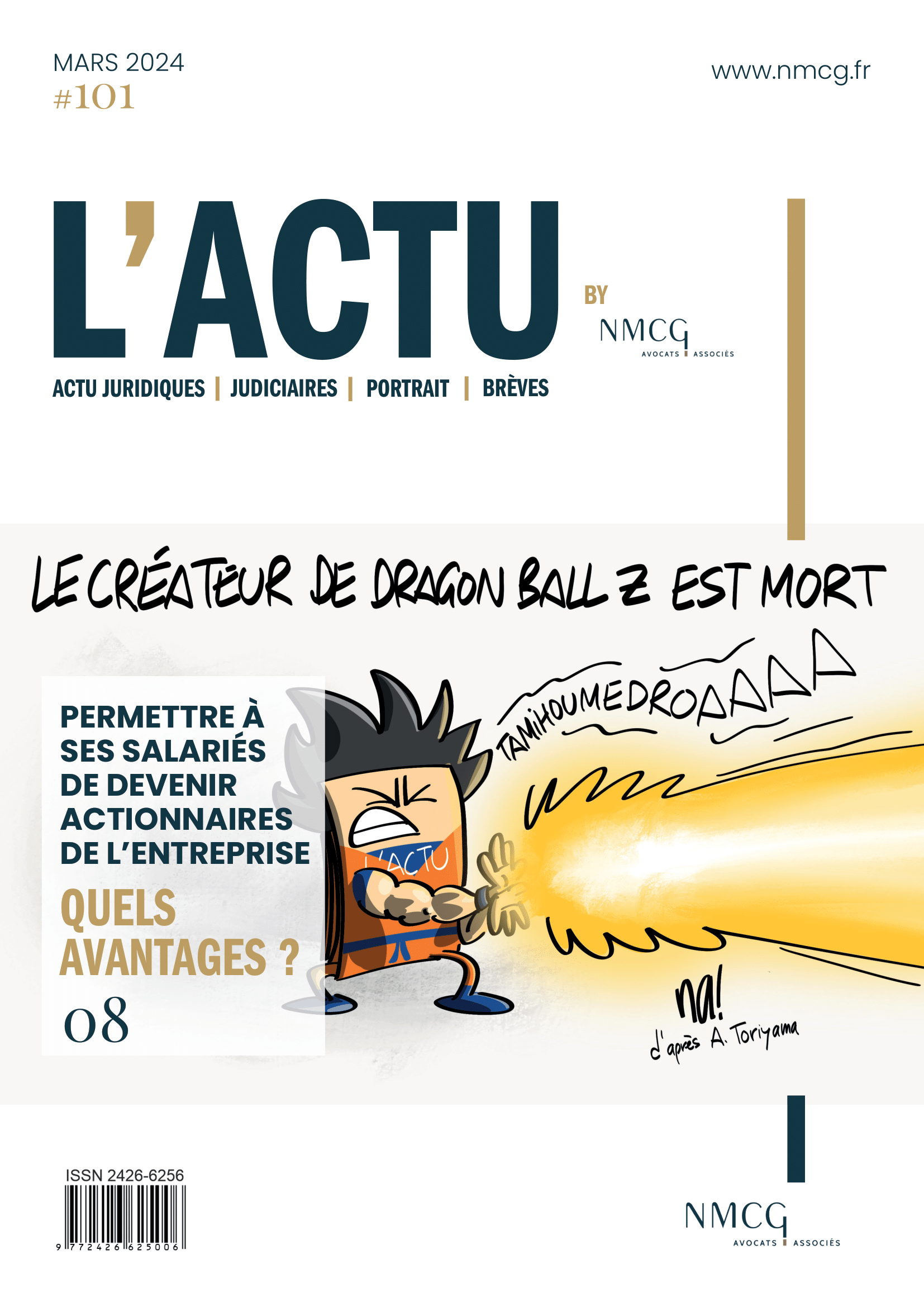The declaration of unfitness […] dismissal for gross misconduct
31 March 2023
Cass. soc., February 8, 2023, n°21-16.258
In a decision handed down on February 8, 2009, the Court of Cassation recalled that the provisions of the French Labor Code relating to the dismissal procedure following a finding of unfitness are a matter of public policy, and prevent the employer from terminating the employment contract for a reason other than unfitness, regardless of whether the employer had previously initiated a procedure on the basis of gross negligence
***
In this case, an employee who was on long-term sick leave was summoned to an interview prior to a possible dismissal set for February 7, 2017, by letter dated January 25, 2017.
At the same time, the person concerned requested, on his own initiative, the organization of a medical examination by the occupational medicine department, which was held on February 6, 2017, and during which the health professional declared him totally and definitively unfit for his position, with mention of the impossibility of reclassification within the company or the group.
However, the employer decided to pursue the dismissal procedure on disciplinary grounds, and on February 16, 2017, pronounced the termination of the employment contract for gross misconduct.
The employee then brought the matter before the industrial tribunal and requested that the dismissal be judged as lacking real and serious cause.
In support of his claims, he argues that, given the conclusions of the occupational physician, he could not be dismissed for disciplinary reasons, but only on the basis of his unfitness, justifying that his employer be ordered to pay him sums relating to :
- conventional severance pay ;
- compensation for notice (and related paid vacations);
- the precautionary layoff having been pronounced while awaiting the pronouncement of the dismissal;
- compensation for dismissal without real and serious cause.
The Grenoble Court of Appeal did not agree with the employee’s analysis, and considered that “The fact that […] was declared permanently unfit for his job by the occupational physician on February 6, 2017, did not deprive SAS FLAMATC of the right to claim gross misconduct on the part of its employee in support of the dismissal that it deemed necessary to pronounce at the end of the disciplinary procedure that it had initiated on January 24..
Clearly, and according to the court, insofar as the dismissal procedure was initiated prior to the finding of unfitness, this first procedure could be completed.
The Court of Cassation, which was seized of the case, did not agree with this position and overturned the decision.
In this respect, it recalls that the Labor Code provides that in the event of unfitness, the employer may only terminate the employment contract if he can justify either his inability to offer a job under the conditions provided for in Article L 1226-2, or the employee refuses the job offered under these conditions, or the opinion of the occupational physician expressly states that keeping the employee in a job would be seriously detrimental to his or her health or that the employee’s state of health prevents him or her from being reclassified in a job.
As these are public policy provisions, they preclude the employer from dismissing a worker for a reason other than unfitness “regardless of whether the employer has previously initiated a dismissal procedure for another reason”.
This case law is part of a broader trend, since the High Court has ruled in the past, and in particular prior to the adoption of the “Labor Law”, that in the event of unfitness following an accident at work, the employer could not use a dismissal for economic reasons as a precedent for unfitness (Cass, soc., March 14, 2000, n°98-41.556; Cass. soc., May 19, 2004, n°02-44.671; Cass. soc., May 10, 2005, n°11-11.854).
Such a position has also been adopted in matters of dismissal for gross misconduct (Cass., soc., 20 December 2012, n°16-14.983).
However, the present judgment provides a necessary clarification, since the Court specifically rules on the fate of a dismissal procedure for disciplinary reasons initiated prior to the finding of unfitness, thus providing additional precision.
The Court of Cassation could very well have taken a different position, since it was held that :
- the employer may retain an economic reason for dismissal of the unfit employee, in the case of a total cessation of activity relating to a company not belonging to a group (Cass., soc., September 15, 2021, n°19-25.613);
- it is possible to conclude a contractual termination with an employee who has been declared unfit for his or her position following an industrial accident (Cass., soc., May 9, 2019, n°17-28.767).
But she decided otherwise.
A decision which, from a purely legal point of view, can be justified in terms of the wording of the texts, but which once again, in our opinion, constitutes total and absolute nonsense, particularly in terms of contractual loyalty.
Indeed, here is an employee who is informed of a disciplinary procedure initiated against him and who, Ô coincidentally, asks at the same time to meet the occupational physician who, in a strange way, judges that the employee is totally unfit for his position and must be dismissed.
The fraud is so obvious as to be grotesque.
Couldn’t we stop for a moment to think about this famous common sense? What is legitimate about allowing an employee to use the legal provisions for the sole purpose of not meeting his or her obligations, and under the seal of a medical field that is in name only?
So yes, there are reference texts, but since the Court of Cassation refuses to come out of them, it is becoming urgent that these texts be modified as soon as it is demonstrated that a legitimate protection of the employee, which could have been considered for a while, is used in a perfectly abusive and unfair way by the latter.
Loyalty and common sense. Maybe one day?






























